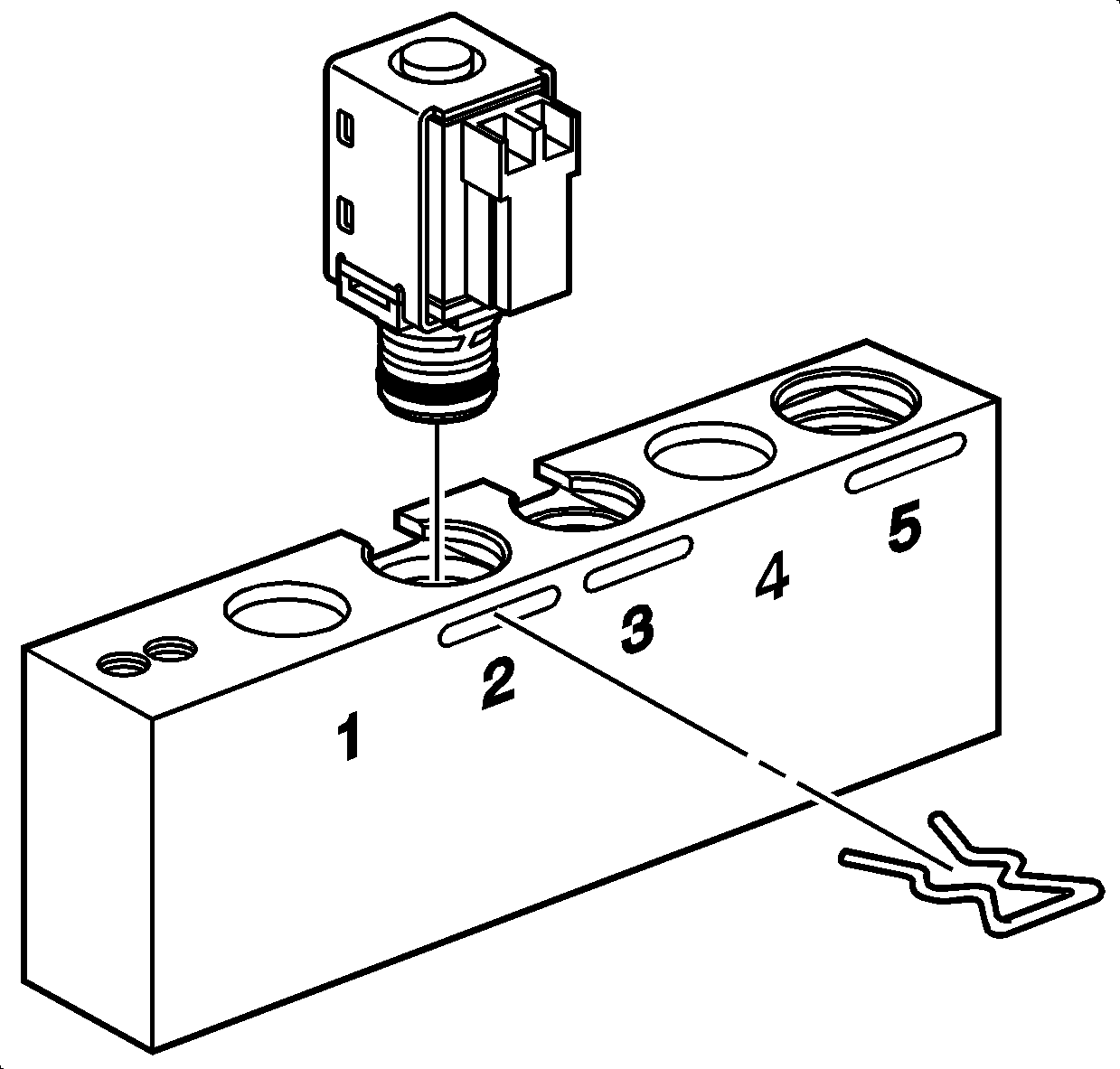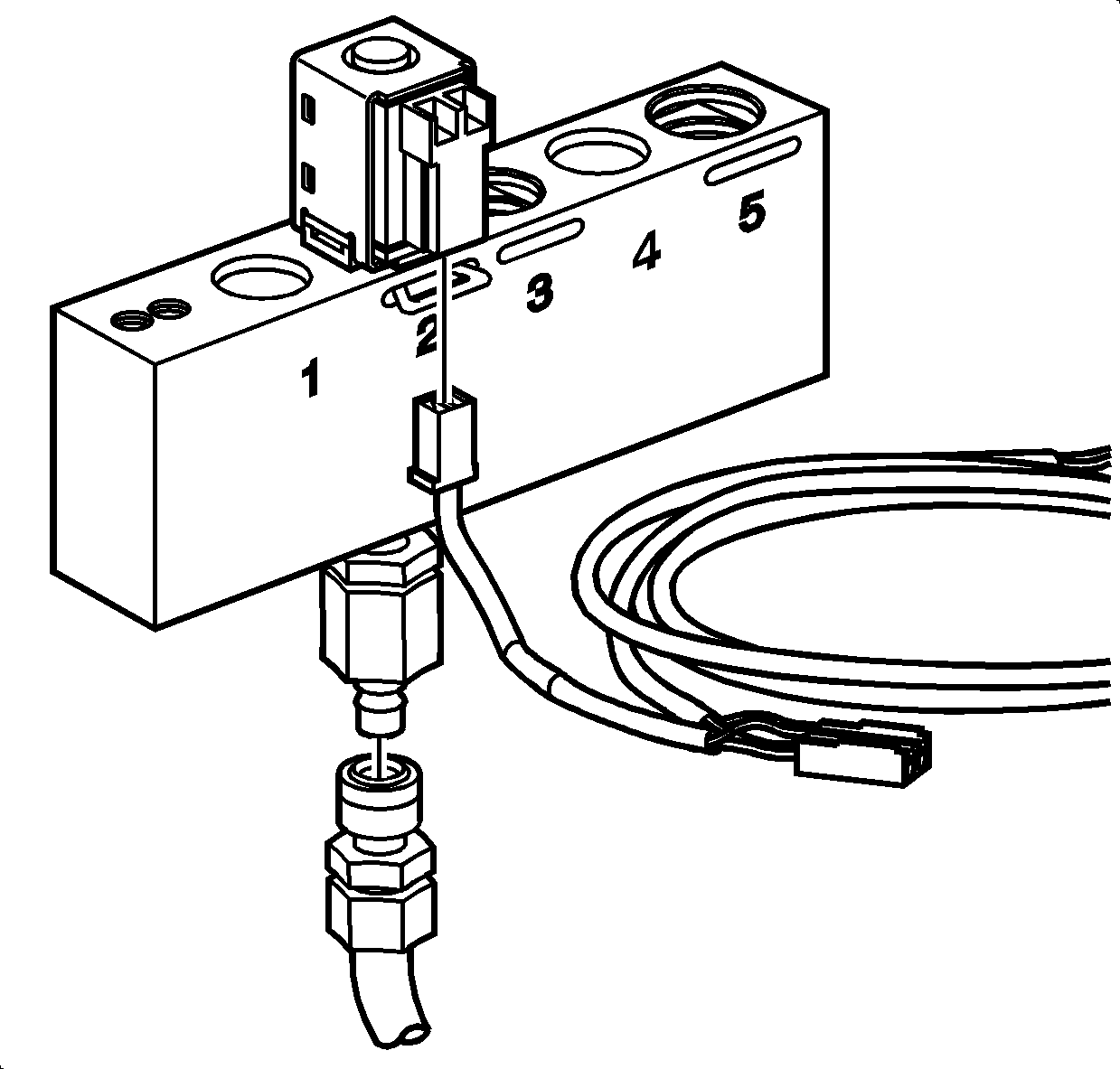Tools Required
| • | J 35616 GM Terminal Test Kit |
| • | J 44246 Solenoid Testing Kit |
Leak Test Procedure
- Remove the shift solenoid valve from the control valve body or the torque converter clutch (TCC) solenoid valve from the transmission case. Refer to Control and Shift Solenoids Replacement or Torque Converter Clutch Pulse Width Modulation Solenoid, Torque Converter Clutch Solenoid, and Wiring Harness .
- Install the TCC solenoid valve, the 1-2 shift solenoid valve or the 2-3 shift solenoid valve into bore number 2 of the J 44246 and install the factory retainer clip to retain the solenoid.
- Connect the solenoid testing harness supplied with the J 44246 to the solenoid.
- Apply compressed air to the J 44246 .
- Air should flow through the solenoid. If air does not flow through the solenoid, replace the solenoid. Refer to Control and Shift Solenoids Replacement .
- Connect the solenoid testing harness to the 12-volt positive (+) and negative (-) battery terminals.
- Observe if the solenoid is operating electrically. An audible clicking noise can be heard when connecting or disconnecting power.
- Observe the air flow through the solenoid. The flow will completely or nearly completely stop. Replace the solenoid if there continues to be an obvious air leak when the solenoid is energized.
- Install the shift solenoid valve into the control valve body or the TCC solenoid valve into the transmission case. Refer to Control and Shift Solenoids Replacement or Torque Converter Clutch Pulse Width Modulation Solenoid, Torque Converter Clutch Solenoid, and Wiring Harness .
Important:
• This procedure tests On/Off type solenoid valves. • Visually inspect the physical condition of the solenoid before testing. Inspect the O-rings before and after the test to be sure that they are not cut or damaged.

Important: To retain the TCC solenoid, use a plastic tie strap around the J 44246 and the solenoid.

Important: The supplied solenoid testing harness will not power the 4L60-E TCC On/Off solenoid. To energize this solenoid, apply battery, 12-volt, positive (+) and negative (-) to the TCC On/Off solenoid wiring harness using connector test adapter kit J 35616 . Use terminal E, Red, Power, and terminal T, Black, Ground. Refer to the Automatic Transmission Inline 20-Way Connector End View .
Important: Do not use air pressure in excess of 827.4 kPa (120 psi). Excessive pressure will not allow the solenoid ball check valve to seat properly. Recommended air pressure is 344.75 kPa (50 psi).
Important:
• All solenoids need to be energized to seal. • A small amount of air leakage is normal +/- 21 kPa (+/- 3 psi).
Important: Inspect the O-rings after the test to be sure that they are not cut or damaged.